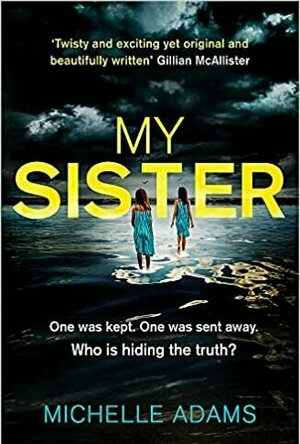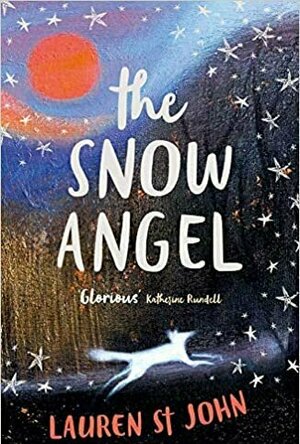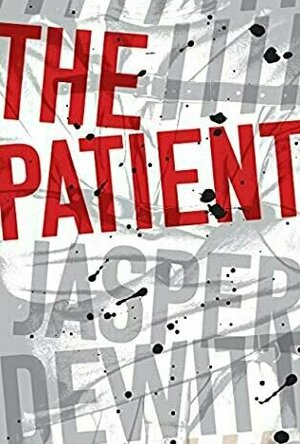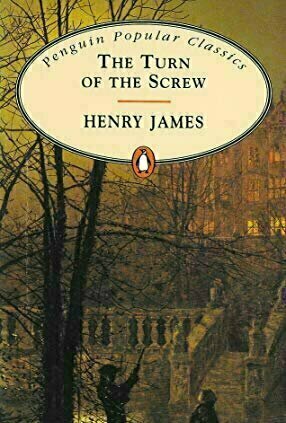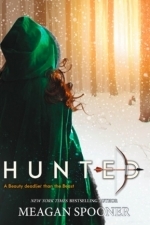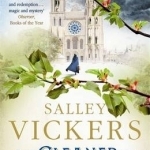
The Cleaner of Chartres
Book
'A lovely book ...wise at heart and filled with colourful characters' Joanne Harris, author of...
BookInspector (124 KP) rated My Sister in Books
Sep 24, 2020
The main character in this novel is Irini (love, love the name), a successful doctor with hip problems, which left her slightly limping. All her life she was running from her sister – Elle. Why? Because Elle is dangerous and unpredictable. I really loved the characters which were chosen for this book. I think they were very original, charismatic and supported each other very nicely. I really liked Irini and her life story, but it is very hard not to admire Elle, in some sort of weird way. Her character has charm, her personality is very strong, her actions, masterful manipulations because she is a psychopath. It was very interesting to read about this connection which Irini and Elle shared, they can’t be together but they need each other. You know it will destroy your life, but you still need it… All this was told while sharing Irini’s experiences from the past, which I found absolutely amusing and very intriguing to read.
The narrative of this novel is very gripping. Page after page, the author brought in a twist or unexpected turn, leaving me more and more interested in what will happen next. The whole plot was told from Irini’s perspective, and even though it was enough to make it an interesting read, I would have loved to read Elle’s perspective as well. I think it would have made this book even more interesting and would’ve answered more questions, and at least for me, it is always interesting to read what psychopaths think. Sometimes I got tired of this constant “Why did they give me away?” question. For me, in some places, it was quite repetitive and not always necessary.
The writing style of this novel is very creative and smartly thought through, leaving some cliffhangers, which are still bothering me a little. The chapters are a very decent length and it didn’t drag for me because the plot has sucked me in. I do not recommend it for young readers, as it contains some mild violence, drugs and alcohol. I am not fully satisfied with the ending of this book, even though it answered the main questions of this novel, it still has unresolved mysteries, which were left with hypothetical explanations.
So, to conclude, I would strongly recommend this dark and gripping thriller, filled with strange sisterly love, very strong and charismatic characters and very well thought through and intriguing plot, uncovering new secrets with every chapter. Enjoy
BookInspector (124 KP) rated The Snow Angel in Books
Sep 24, 2020
I really enjoyed this book and its complex characters. The protagonist in this novel is Makena. She is a very smart person for an eleven-year-old. Her thoughts about life, survival and friendship were so inspiring to me, that’s why, I think, this book is superb for young readers. Makena teaches so many great values and shows great appreciation for things that matter in life. I really loved that the author chose such unique and original characters. They all had very intriguing personalities and their input in the story was irreplaceable. The story was mostly told from Makena’s perspective, and it was fully sufficient for me.
The narrative was absolutely gorgeous. It has a lot to offer to the reader, it is serious, educational but at the same time playful and magical. I think the author has done a great research for this book, and her personal experience was very well utilized in this novel. There is plenty of surprises in this story, which kept me glued to this book. I really loved the topics which the author was discussing, such as Ebola and its effects on the families they left behind, poverty and fight for survival, charity workers and their lives, and many more. The setting and atmosphere always change in this book, from Mount Kenya to slums, to the Scottish Highlands, so, your imagination will not be bored and will be taking you to various places…
I really enjoyed the writing style of this novel, I think it was very well crafted and I found it easy, and pleasant to read. The chapters are not very short, but for me, they just flew by because I was absorbed by the story itself. It has absolutely stunning illustrations by Catherine Hyde, and it makes the whole reading experience even more pleasant. I did enjoy the ending of this book, I think it rounded the story very nicely and gave the closure which left me very satisfied.
So, to conclude, this is a very beautiful story, filled with inspiring and motivating characters, who made me smile and cry on multiple occasions, and I do strongly recommend this book not only to children but to adults as well. There are plenty of things to learn from little Makena.
Necole (36 KP) rated The Patient in Books
Nov 24, 2021
I just got done reading The Patient by Jasper Dewitt and was not expecting to get sucked into a one morning read-a-thon. I think I read it in maybe 2 ½ hours. With that being said, I gave this book a 3-star review, although it should be a 3 ½-star review. I will start with the good and end with the bad.
A young, overconfident psychiatrist gets a new job at a mental asylum and chronicles his attempts to treat a profoundly disturbed patient who has been in the hospital since early childhood through a series of online posts. Each chapter is a new day and a new post that Parker has shared with the readers. This manuscript writing style was a unique way to give us Parker’s perspective and account of what occurred with patient “Joe”. I also enjoyed the transcripts and the audio tapes added into the chapters. These few thing added more layers to the story, sucked you in deeper, and gave an unexpecting twist to the book. It was like you were really reading a true account from whom it occurred to.
After reading all the hype and the synopsis of the book, I was hooked and reeled in. A psychiatrist, a mental patient, an asylum set in my home state of Connecticut, strange occurrences to those who have treated patient “Joe”, misdiagnosis’, undiagnosis’, a 30 plus year mystery … The Patient seemed to have it all!!! Even dark, creepy, supernatural horror!!! A perfectly blended cocktail of psychological thriller and supernatural horror.
Unfortunately, it fell flat for me. I kept anticipating more twists, turns, gore and scare. I wanted this book to haunt me well after I finished. The ending felt rushed and not well thought out, I felt like I was cheated out of being scared out of my mind. There was enough horror, suspense, thrills and mystery to keep me reading but after completing The Patient, I just felt let down. I feel like even as the story unfolds, Jasper could have gotten more in depth with the creepy and horror factor but instead it was almost basic. I tried to let my imagination scare with the images the author tries to put in your mind but again I was disappointed.
If you want a quick read that will scare you a little but will keep the suspense up, then pick this up because one person’s opinion is not another’s and who knows, you might scare more easily than me.
Hadley (567 KP) rated The Turn of the Screw in Books
Mar 24, 2020 (Updated Mar 24, 2020)
With only 93 pages and the viewpoint of a governess, the story is one that has been up for debate as to its meaning for over a century, a story that blends child abuse and ghostly possession way ahead of its time. But even with its great plot, the story falls short and becomes bland throughout most of its short pages.
So why is the meaning of the Turn of the Screw still being debated? There's only one thing that has caused that --- it's in the way that James wrote the story, nothing is explained and everything is vague, these being very important parts that can keep this book from being enjoyable to many readers. Here's a summary of the story: a woman becomes governess of two children, one of which is sent home from school (technically expelled, in today's terms), the entire book has this woman trying to figure out why the child was sent home, but with ghosts thrown into the mix.
The story starts off with a man telling this ghost story from letters he received from a woman (the governess). But, even at the end of the book, the story never turns back to the man finishing the letters, yet this was done so masterfully that when you are done with the book, you completely forget about the man at the beginning, something that isn't easily done today in most writing. The man is reading these letters to a small audience that is also never revealed why, something that will seem completely irrelevant for the reader.
Readers finally get their paranormal fix when our main character, the governess, sees her first ghost in the Turn of the Screw. Our governess goes on an isolated walk when she spots an older man staring at her from a tower on the estate. But not until after a second encounter with this man, she decides to tell a housemaid about it, who quickly knows whom she speaks of. The maid is very certain that the man the governess has spotted twice is a deceased man that used to work for the family, but the maid is terrified by this because this man seems to have been abusive towards the son of the family and now seems to be continuing to torment him even after death.
Our governess seems to go down a path of paranoia as she seems to believe that the children are seeing the ghosts, too, but refusing to tell her so, and she becomes convinced that the key to getting them to confess is to finding out why the boy was sent home from school in the first place. She tries many times to get him to tell her why, but lets him take control of the conversations where he is able to divert the attention to something else. When things seem to be too much for the governess and housemaid to handle, they decide to try to write the childrens' uncle, and ask him to visit - - - this being the uncle that hired the governess and asked to never be bothered by her again, and that he wants nothing to do with his niece and nephew ever again, and especially don't write to him about any problems.
James is considered one of the greatest authors of the English language, but although this novella did very well, he wasn't known for ghost stories. His most popular book is 'the Portrait of a Lady,' which is about a young woman who comes into a large amount of money only to have it stolen by two con-men. Being that he is a Victorian-era writer, you can expect the overly long paragraphs and descriptions that the time was known for in 'the Turn of the Screw.' I personally felt the story had too many interludes of the governess' thoughts and ideas, which border on rambling. There seemed no point in the governess obsessing over why the boy was sent home from school when there are ghosts tormenting them at home- - - how this mode was suppose to work has left me clueless.
It's a usual horror trope to have children being possessed as the core of a book because it's something that can shake adults to their core at the thought that their own children could be that vulnerable. But James was way ahead of his time in the Turn of the Screw. He was able to put together psychological standpoints that weren't even discussed in his time, bouncing between child abuse with those children acting out to the power that abusers can still hold over their victims, even after death.
I'm giving the story a high rating, although I really didn't enjoy it. Why? Because it was a great idea and it was well written. If James hadn't been so vague on key parts, and hadn't left readers with a shocking unexplained ending, then maybe I would have liked it more. I can only recommend this book to people who like Victorian ghost stories, but for paranormal lovers, I think it falls short.
Like the classic tale, Beauty is the youngest of three sisters and daughter of a merchant. In some versions, she also has three brothers and her sisters are unkind - but that is not the case in this retelling. They live in a nice house until a shipping gamble costs them everything. They are forced to move to their father's old hunting cabin, which is a three-day walk from their current home. Her father used to be a hunter, but his wife believed that it was too dangerous and asked him to stop. Despite that, as a child Beauty was allowed to go hunting with her father and learned to love it. Unfortunately, as she grew her father decided that it was not the way a lady should purport herself and no longer allowed her to hunt.
After the loss of their fortune, Yeva and her family must learn to make due with less. Her father takes up hunting again and goes off to catch game for them to store for the winter. Unfortunately, when he returns he is distraught and swears that the Beast he saw when he was younger is stalking him. When he doesn't return from his second trip, Yeva sets out to find him and this is where the story adopts some significantly different elements from the original tale.
In the original, the father enters a castle and accepts his host's hospitality, but upon leaving takes a single rose for his daughter Beauty and is told he has a choice. He shall either be condemned to death for it or he must stay in the castle. While these are not the events that lead to Yeva's time in the castle, nevertheless she ends up imprisoned there. Over time, she and the Beast grow to know one another - but her treatment isn't as kind overall as the original.
I really enjoyed the tales that Yeva told while she was in captivity because they built the lore of the world and gave us a look into what the characters had grown up listening to. Although Yeva spent most of her time as the castle, I do wish that we were able to get to know the other characters like her sisters a little better. They seem very kind, but relatively one-dimensional. As a result of the Beast's curse, I don't feel like we got to know him as well as we could have. I would have loved to watch him grow and connect with him as Yeva does so that I could feel that </i>yes, they could fall in love.</i> I liked Yeva, but her dog Doe-Eyes was probably my favourite character. The dog was so cheerful and loyal that you couldn't help but love her.
The world that Yeva knows is not one we get to see very often in young adult literature. It is a melding of Russia, with its unique environment and folklore, with a more fantastical world. Yeva tells tales of the Firebird, sees a creature that is half dragon and half woman, and learns to listen to the music of that other world. The world itself reminds me a lot of the Grisha trilogy, although the plots and characters are nothing alike. I would love to experience more of the lore that built this enchanted world in the form of novellas.
I would highly recommend this to young adult/teen readers who enjoy fairytales and retellings, especially ones with a unique take on the tale that includes a lot of culture and lore.

Speakaboos - The Reading and Learning App for Kids
Education and Book
App
The only reading app designed to motivate kids to read! ** Over 200 interactive stories & songs that...
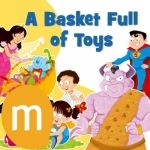
A Basket Full Of Toys - Reading Planet series, authored by Sheetal Sharma, is a genre of imaginative fiction whose vibrant and bubbly characters discover the essence of good behaviour in a fun way
Book and Education
App
‘Reading Planet’ series, authored by Sheetal Sharma, is a genre of imaginative fiction whose...

AAA+ Foundr - Entrepreneur Magazine for a Startup
Business and Magazines & Newspapers
App
FREE Download & FREE Trial! Foundr Magazine is leading a movement that reveals exactly what it...
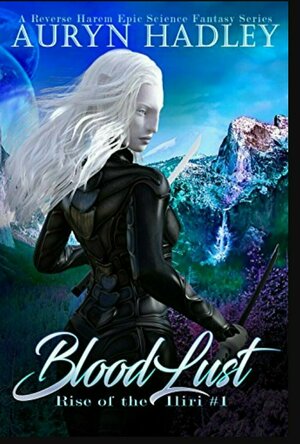
Bloodlust (The Rise Of Iliri #1)
Book
"Bloodlust, and the Rise of the Iliri series as a whole, will blow you mind, break your heart, and...
Young adult Vampire Vampyre Ilirri Young adult Teen
